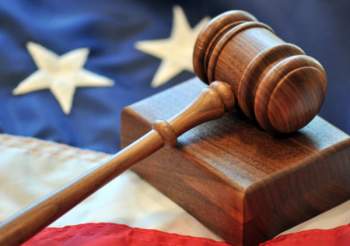
Objections to Oaths You Didn't Know

The main objection in regards to swearing in a witness is the religious implication, as well as influences attached to the oath. With numerous biblical references, the process of swearing in a witness is dated, and to many archaic. The main goal of swearing in a witness is to guarantee truthful statements.
The oath attempts to fulfill validity through three means: including God as a witness, placing psychological stress on the individual's conscience, and most importantly, instilling harsh punishments for lying under oath. All three of these factors place pressure on the individual under oath through fear of punishment or rejection of a divine intervention. The question therein lies: how effective can an oath be on an individual who is an atheist?
There is a growing population that does not affiliate with a religion, making themselves atheists, or at least not of Christian faith. The most fundamental argument involving the wording of the oath is in regards to discrimination. Individuals are allowed to practice whatever religion they choose in the United States.
There are no binds placed on an American citizen in regards to religion. By including God or religious implications in a procedure as prolific as swearing in a witness, the civil institution of a trial becomes complicated with religious rhetoric.
Swearing a witness in who is not of Christian faith or does not believe in God will fall under two categories: he or she will either take the oath or not take the oath. Those who do not believe in God and agree to take the oath are in fact lying under oath and committing perjury before even speaking.
The oath states that the individual will tell the truth under the eyes of God and will be readily aware of the consequences that a divine intervention will inflict if lying under oath is present. An individual who does not believe in God, yet still takes the oath, is void of the consequences imposed and is already guilty of lying based on his or her lack of affiliation with religion.
On the other hand, an individual who refuses to take the oath will not be heard and will thus fail to testify. His or her moral or religious beliefs will penalize him or her greatly. This can obviously affect the case if the information the individual possesses is pertinent to the outcome. The inclusion of God or religion within the process of swearing in a witness creates an impossible position both morally and procedurally for those that do not believe in God.
Ironically the process of swearing in a witness has also been called into question by devout Catholics. The oath can be traced back to the Bible. However, what the Bible states is that God actually should not be involved in the process of administering an oath. The Bible states that Christians should always be truthful and that the inclusion of God in an oath is actually using the lord's name in vein.
The Bible also states that only God has the power to include himself in a procedure or statement and that man has no right or power to accomplish such a task. Lastly, the Bible states that lying under oath represents a penalty of which most men are unaware. Lying under oath is a violation of the Third Amendment and considered a grave sin in Christianity.
To both atheists and devout Catholics, the oath represents a degradation in the procedure to find truth. Lying under oath is considered perjury and a miscarriage of justice. These offenses rock the inner core of America's establishment. Violating the Sixth Amendment, by disallowing an individual a right to a fair trial, is a felony in the United States and one that can carry a punishment of imprisonment.
NEXT: The Prosecution of Armed Robbery




















